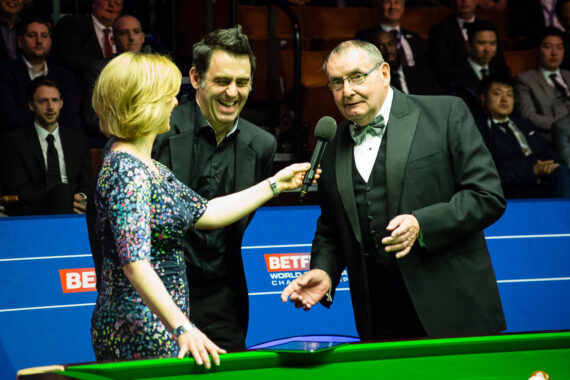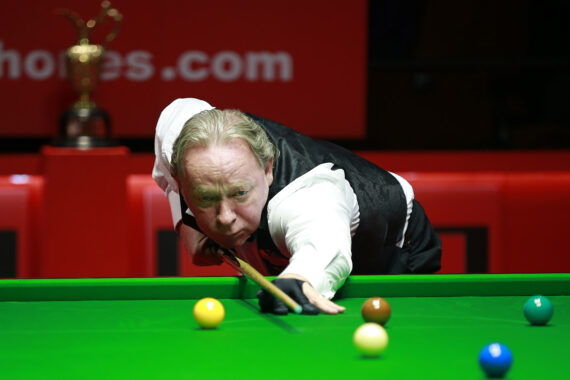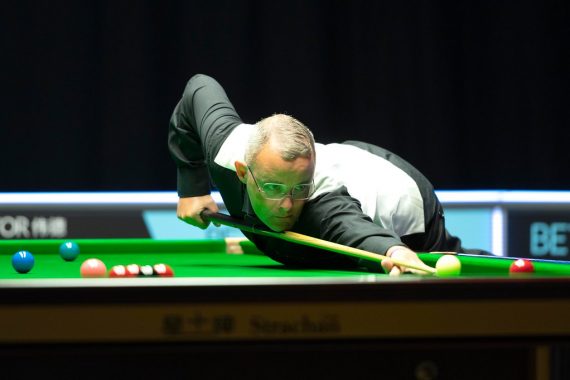Your Cue to Talk: Martin Gould
Last month, England’s Martin Gould narrowly missed out on taking home the first ranking event silverware of the season following defeat to Mark Selby in the final of the European Masters.
Away from the baize, however, the ‘Pinner Potter’ has been winning a far more important battle for his own mental health after he opened up publicly about his battle with depression in recent times.
Ahead of this year’s World Mental Health Day which takes place on Saturday (10 October), leading snooker commentator and journalist David Hendon spoke with Martin in the latest instalment of the Snooker Scene Podcast about how he has got his snooker career – and life – back on track.
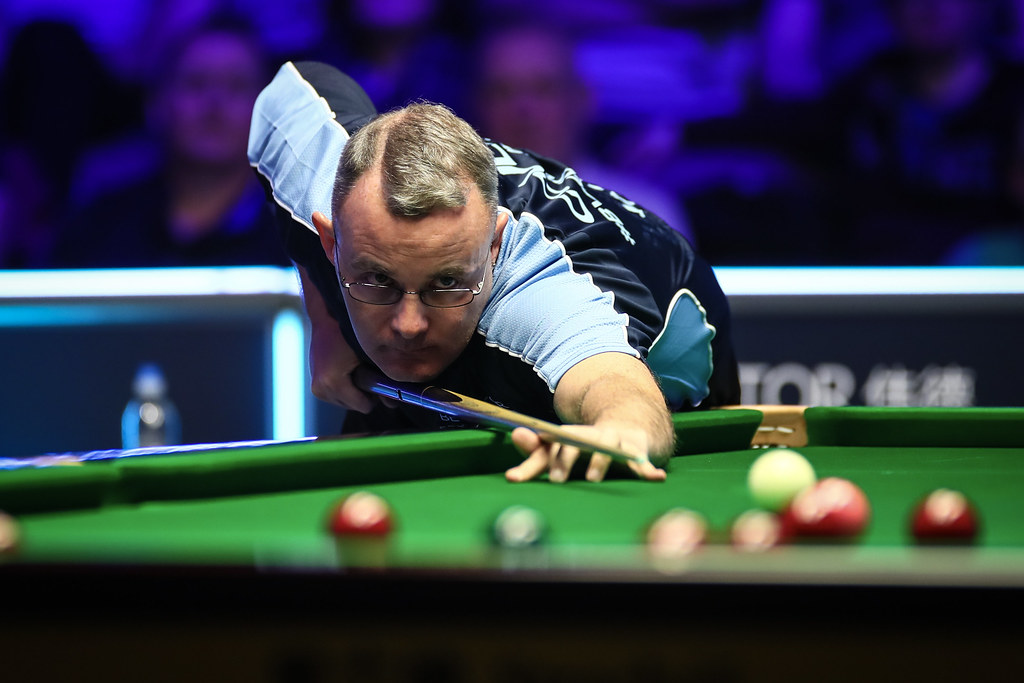
“Something isn’t right, I haven’t felt right for months. I don’t want to play snooker, I don’t want to travel, I don’t want to practice, I don’t want to do anything.”
Those were the words of Gould to the well-respected WST security official Mark Williams at this year’s Shoot Out back in February.
To those on the outside, including a ‘shell-shocked’ Williams, the admission was one that few had seen coming for a player who has been ranked as high as number 11 and was a ranking event winner barely four years prior at the German Masters. A professional since his second English Amateur Championship title back in 2007, Gould has frequently thrilled snooker fans everywhere with his attacking philosophy on the baize and is well-regarded by his peers and rivals alike.
But beneath the surface he had been hiding a struggle that he could not share even with those closest to him.
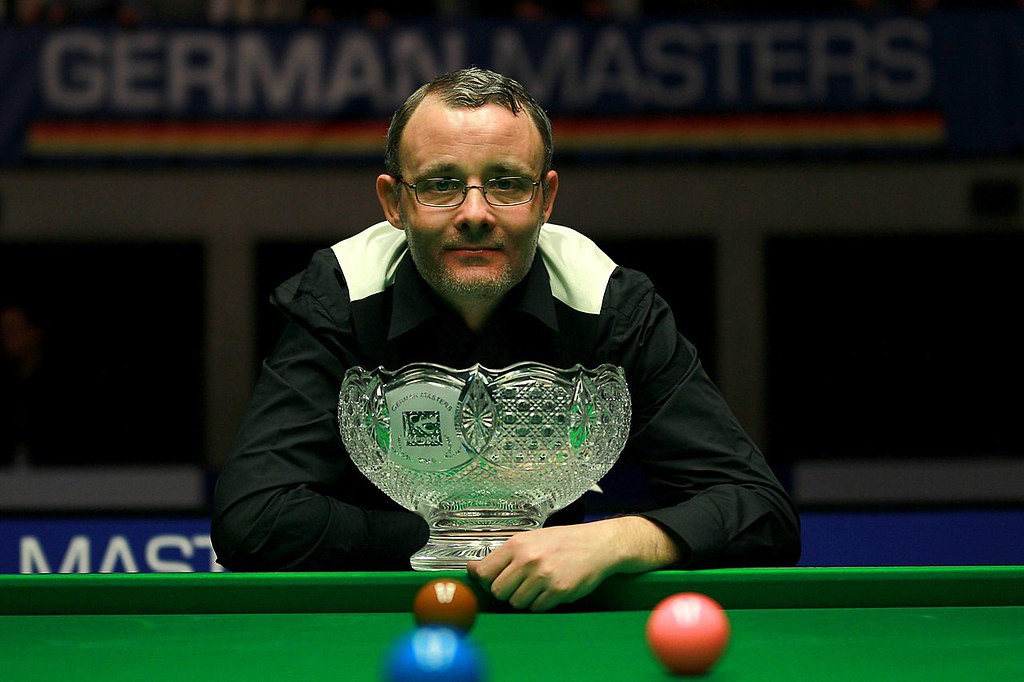
“Once I got out there on the table it was alright – but it was the lead up,” said Gould. “I wasn’t enjoying the travelling or going up the club [to practice]. I would be there 20 minutes and trying to find an excuse to get out. I think I have had four new washing machines, a couple of ovens… It gets to the point people start to work out you are making an awful lot of excuses here.
“My dad used to ask me questions, he must have worked out something wasn’t right, but I suppose he didn’t really want me to answer it. Sometimes he would ring me and ask if everything was ok and I said that I was – I knew I wasn’t – but no one had really pressured me and said something was wrong.”
Having turned professional for the first time in 2003, following his win at that year’s English Amateur Championship, Gould would receive devastating news shortly before the start of that season’s Welsh Open qualifiers when he was informed by doctors that his mother Shirley would have just months to live after being diagnosed with terminal cancer.
For some time, snooker took a back seat as together with his sister he became a live-in carer and ultimately, he had to get a job to earn an income. As he describes, ‘real life took over’ when he was 22 and he now wonders whether this period has contributed to his more recent struggles.
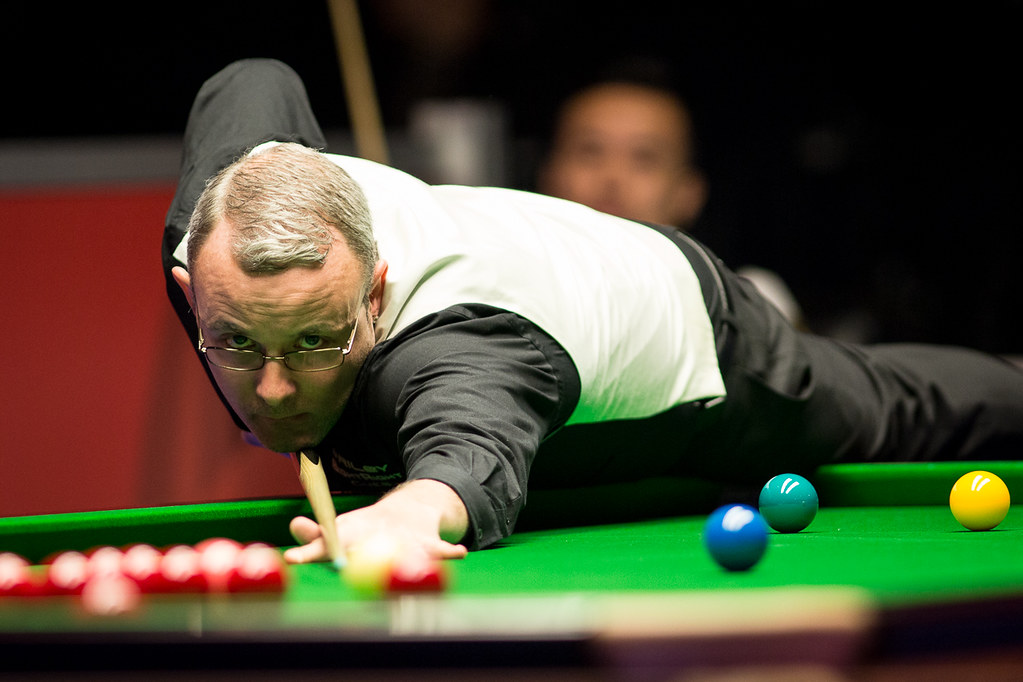
“It is pretty hard to finger point exactly when it [depression] began,” explained Gould. “I think some of it may have stemmed from when my mum passed away. I didn’t really grieve, I just got on with life.
“I have tried to explain to my friends who say that I must love travelling – but I don’t – I hated it. It got to the point where if I had lost first round in China, I would pay ridiculous money to change flights, rather than wait for a couple of hours, just to get away. At the Welsh Open back in February I had drawn Stuart Bingham and on the train halfway up I was on Trainline looking at what time I could get back home that night if I were to get pumped 4-0, 4-1.”
It was to be the following week at the Shoot Out where Gould would reach a crucial turning point. As well as the inner-demons he was facing, he was also dealing with a problem with his eyes which by his own admission meant that “everything was a blur.”
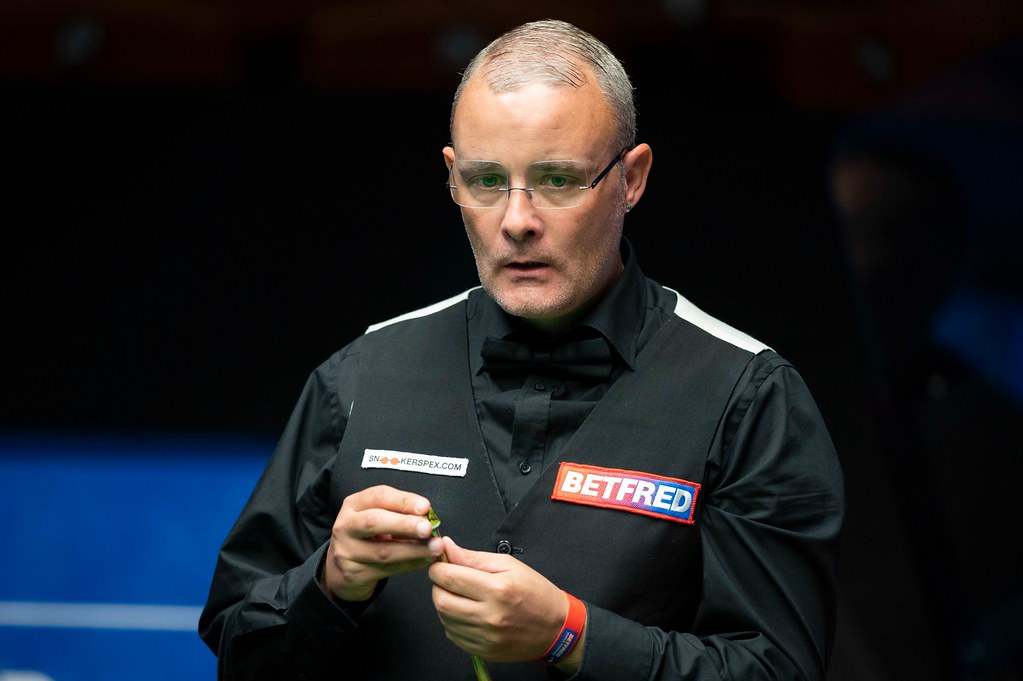
The result was that he had eight wins to his name for the season and following defeat to Andrew Higginson in Watford he told friends that he would not be playing again the following season. It was shortly afterwards that he opened up to WST’s Mark Williams about how he was really feeling, a decision which he now says had a positive effect immediately.
“He said I had been hiding that well for a few months because I had always seemed cheerful, talkative, nice and polite to everyone,” said Gould. “That’s how I’m supposed to act anyway so that’s not a problem for me. I just knew something wasn’t right.
“The next day I’d had 10-15 missed calls from my dad who was starting to panic and that coincided with Neil Tomkins [WPBSA Player Relations Manager] having rung me. He said that Mark had spoken to him and I think I was on the phone to him for an hour, hour and a half explaining bits and pieces. He put me through to Sporting Chance, I spoke to them and went to see my own doctor.
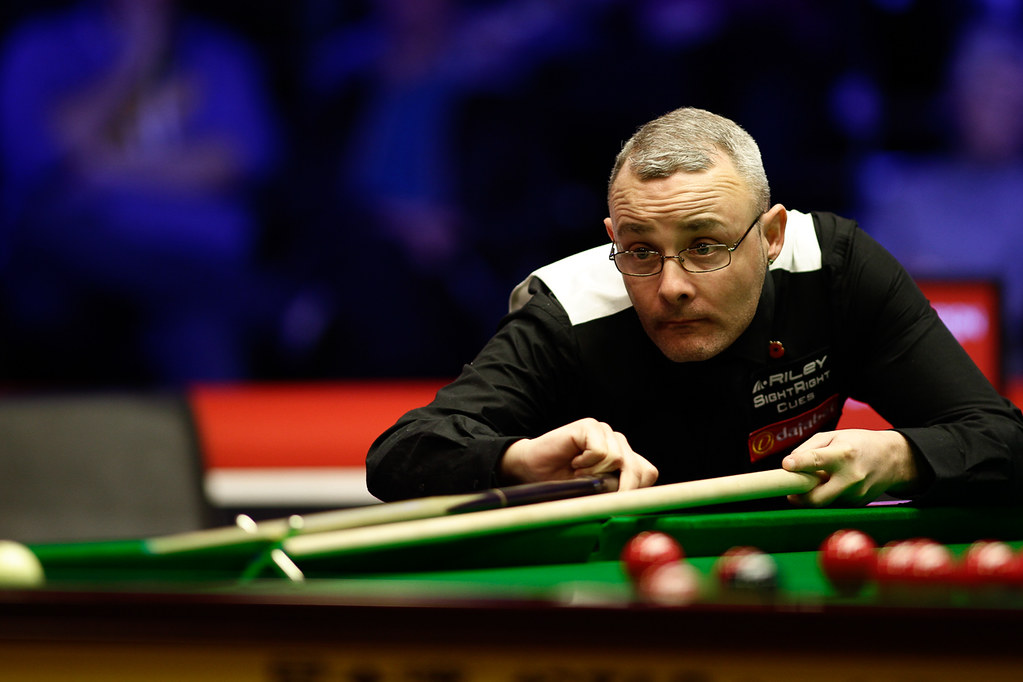
“It was nice to talk to someone. As soon as I did speak to someone, whether it be Mark, doctors or anyone from Sporting Chance, it felt like 20 stone had been lifted off my shoulders, I felt light. Certain parts of me didn’t ache as much.
“I went and saw the doctor and had some blood tests and it turned out I was very low on vitamin D which can cause your body to ache and not to sleep. At that time my back was playing up, my neck was playing up, I was constantly seeing my osteopath weekly, sometimes twice a week. I just felt like there were a lot of little triggers just happening at once and it all blew up and I got to the point where I just knew I had to get something done.”
It has been documented by the Mental Health Foundation that around 1 in 8 men have a common mental health problem, but that according to a 2016 survey they may be more reluctant to seek support for their mental health or disclose mental health problems to loved ones – something that Gould can relate to.
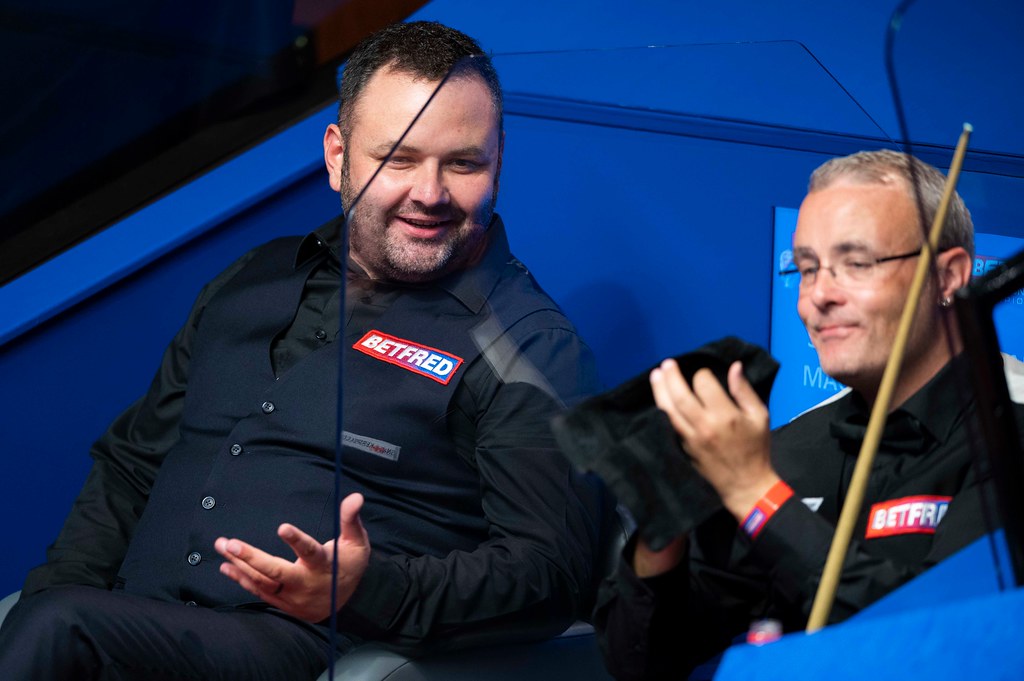
“I’ve had a couple of other snooker players message me since,” continued Gould. They have told me what they have seen me do has pushed them to get some help of some description.
“For men it is very difficult, you might say that you don’t feel great or that something isn’t right, and someone will tell you to snap out of it, have a drink. But that would mean while you might feel good that night, the next day you are going to feel even worse because not only are you going to have a hangover, but everything is still going to be there and that hasn’t helped.
“Especially people who are in the limelight like Freddie Flintoff who has spoken about his problems, or Andrew ‘Beef’ Johnson has come out recently with some problems. He said people were telling him that he was a ‘joke’ of a golfer – but for me he has expressed himself on the golf course and I’m loving it, I was the opposite. I thought he was great for the game.
“But it’s the thing where once you start hearing negative comments, they overwhelm all the positives. You forget about the positives and just take all the negatives. Social media is another case with 100 comments about a match that I have played, and I find the one negative and I would look at that one person which has criticised me. It can get to you, for us men it’s difficult to call someone up and ask for a chat. Some men don’t know how to react.”
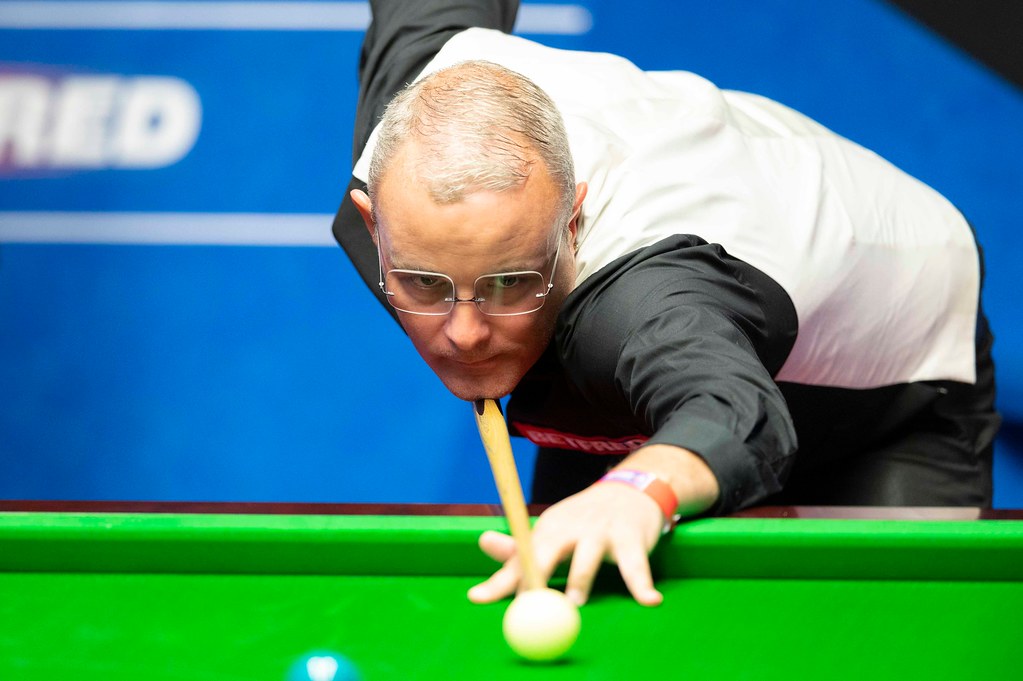
In the lockdown months following his conversation with Williams, Gould was not only able to access the support in place through the WPBSA and his own doctor, but combined with the addition of new snooker glasses supplied by SnookerSpex was able to also to rededicate himself to snooker with 6-7 weeks of practice ahead of the World Championship qualifiers.
Three victories, including an impressive win against former world champion Graeme Dott in the final qualifying round, were enough to secure his place at the Crucible where he would go on to defeat Stephen Maguire to reach the last 16 for the first time in nine years.
Although he would lose out to eventual runner-up Kyren Wilson, his performance was more than enough to ease any concerns of losing his main tour place and would carry his form into the new season by reaching the final of the season-opening European Masters only two weeks ago.

“I wasn’t expecting to get to the final,” said Gould. “I had only booked two nights at the start as I had drawn John Higgins first round.
“I only had two days practice beforehand, one day with Matthew Glasby on the Tuesday and two hours on my own on the Wednesday since the Crucible. I felt that with everything that had gone on at the worlds, not just on the table but off the table I just need to take a complete break because it was mentally and physically draining.
“I only got to the second round but with interviews in between, playing best of 25 takes a lot out of you. It was three weeks of high continuous concentration and mental strength. At the start of every day I said to just enjoy the day, if someone tries to upset you don’t let them.
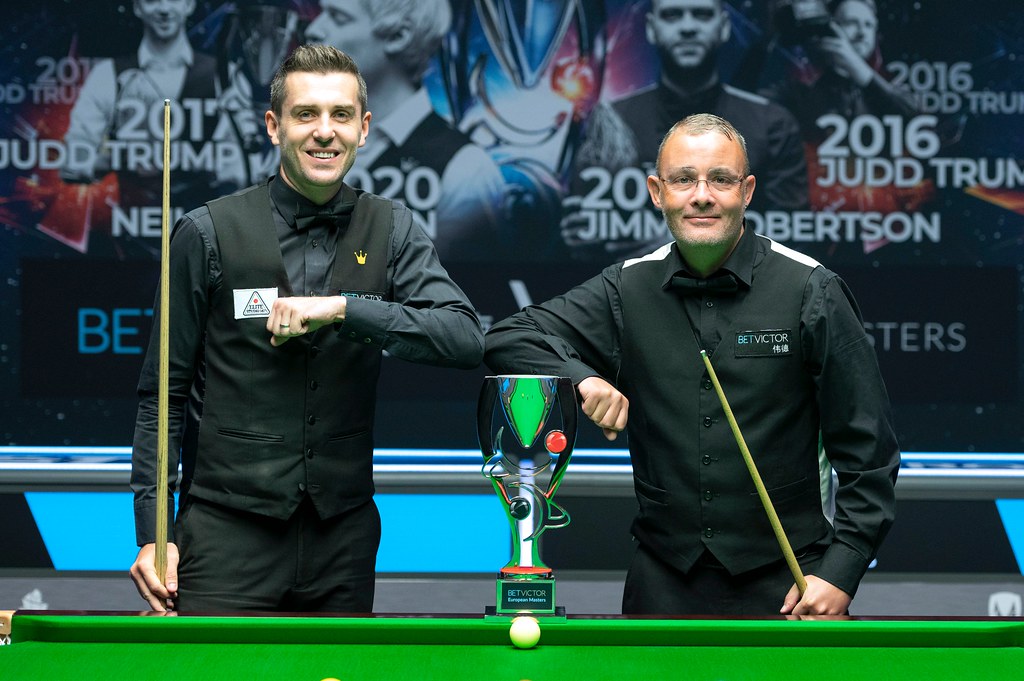
“In the final [against Mark Selby] I didn’t get a look to 4-0 and he should have gone 5-0. He didn’t and I went from being slumped to feeling ready to go and it was a great game after that.
“I was disappointed to have lost, but we all miss balls we shouldn’t and pot balls we shouldn’t. It is part and parcel of the game and I enjoyed it. I didn’t get disheartened thinking I couldn’t believe I had lost that, I went back to the players’ lounge, had a few drinks with the crew.”
Back up to 36 in the latest world rankings and as high as 24 on the Provisional End of Season Rankings, Gould has given himself the perfect springboard for a successful campaign on tour.
At the same time, he does recognise that there the management of his mental health is not something that can simply be cured, but something that he will continue to monitor going forwards.
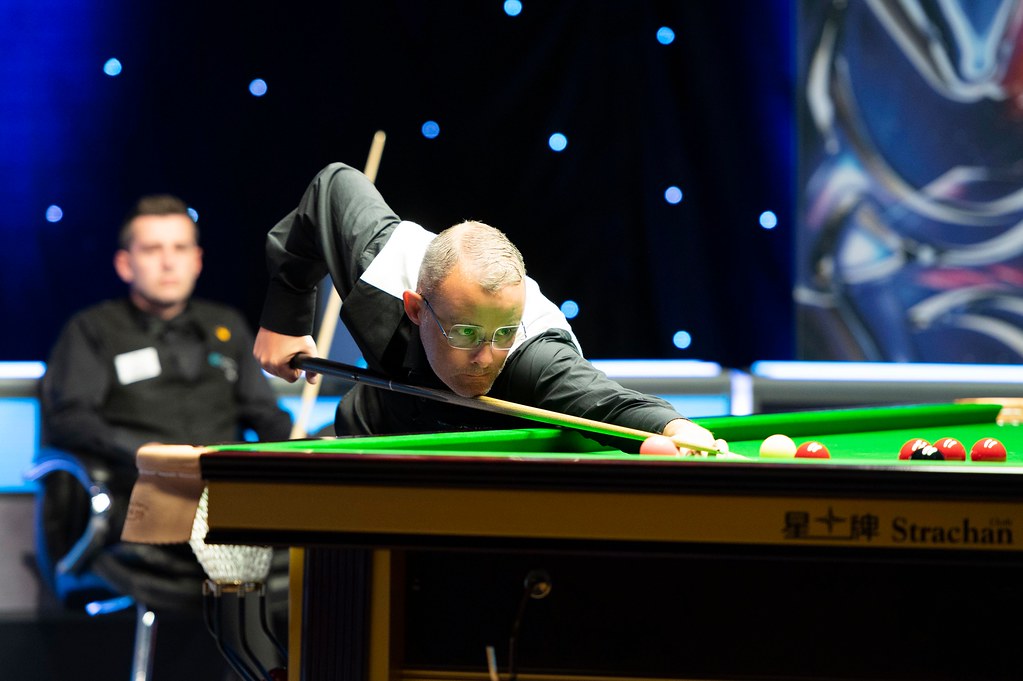
“I have been told that there may be times where I do get a blip but touch wood that hasn’t happened as of yet,” continued Gould. “I haven’t had that feeling of travelling to a tournament and feeling that I want to come home.”
“I have found the two ‘bubbles’ that we have had to do difficult, but I’ve been ok. I have learned from the experience of Sheffield and brought a DVD player since, so I am not going to be twiddling my thumbs. I’m not an avid watcher of snooker, I do it for my own job so the last thing I want to do is watch everybody else play.
“I will definitely continue to keep an eye on it (mental health). We are playing a lot of events in Milton Keynes and I am only half an hour away so that does make things easier, I don’t drive so I travel a lot on the train. But my dad is retired now so if need be and I feel like I can’t do a train journey he can come and pick me up and drop me off – good old daddy!”
The WPBSA would like to thank Martin for speaking candidly about his own journey and David Hendon for his permission to use his interview. You can listen to the full audio podcast during which Martin talks about how he got into snooker and much more HERE.
Any player out there who may be struggling with their own mental health can read more about the support available from the WPBSA and our partners at our dedicated Mental Health Support page.
